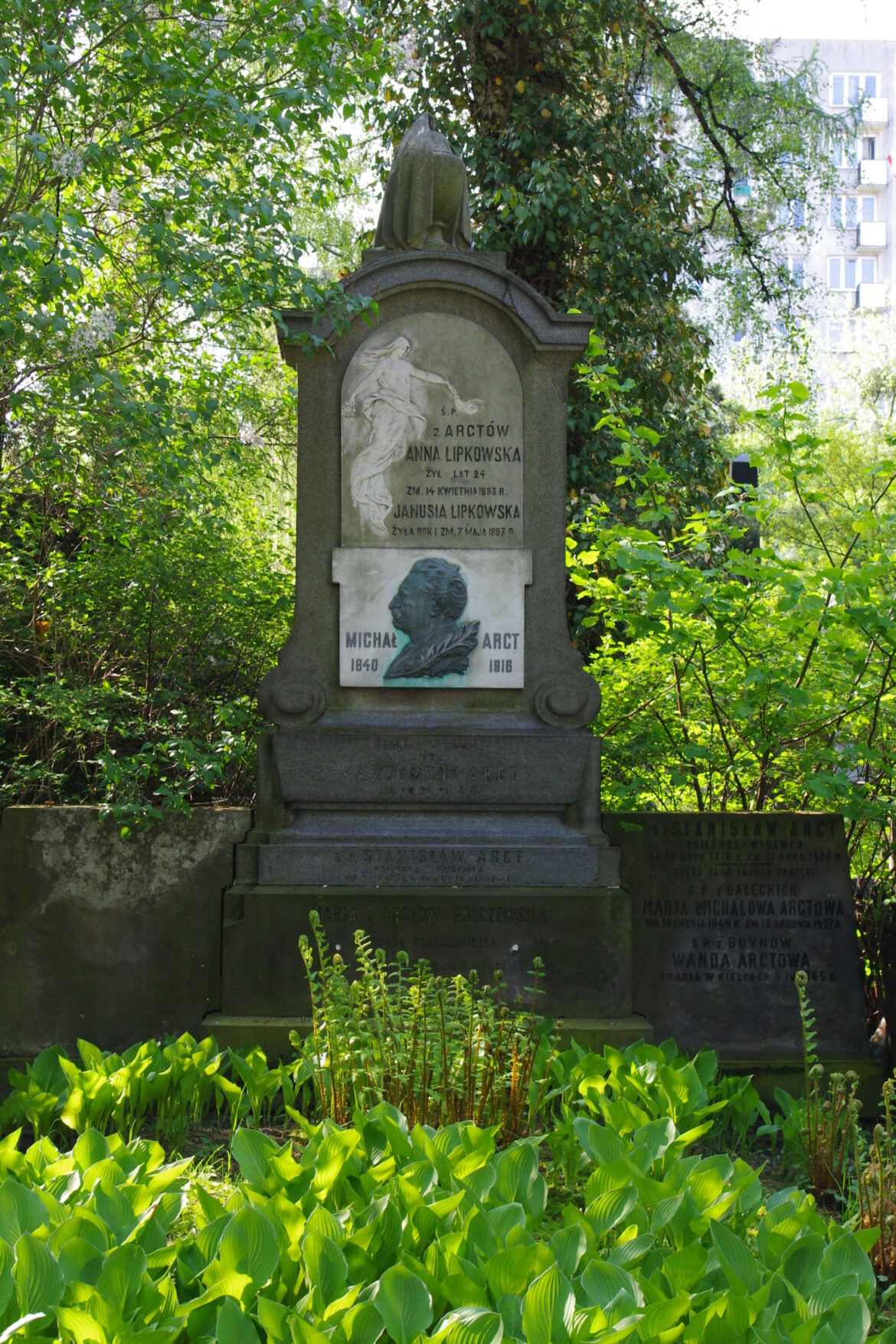One of the most famous Polish 19th-century book and publishing companies belonged to the Arct family from Lublin. The company was founded by his uncle, Stanisław. He was the son of a Jewish doctor from Lublin who worked in a prison hospital. The Arct’s publishing house was then transferred to Warsaw and developed by Michał Arct (1840-1916).
In 1836, S. Arct opened a bookstore on Krakowskie Przedmieście Street. The reputation of this place grew from year to year. The famous Polish writer Aleksander Głowacki aka Bolesław Prus, who in the 1860s studied at a gymnasium in Lublin, recalled the unique atmosphere of this place with appreciation and kindness. He was impressed by the wide selection of books, music sheets and magazines that was larger than in Warsaw.
The bookstores at that time also served as a reading room, and S. Arct also ran an antiquities shop. In addition, along with the development of the company, he started buying books from publishers and signed them with his own trademark. The next step was to develop typical publishing activities.
Stanisław Arct was involved in Polish patriotic activities. His parents were strongly assimilated with Polish society. In 1853 they changed their religion from Mosaic to Evangelical Reformed Church. It is not surprising then that their son participated in the conspiracy of Fr. Ściegienny (1840-1844), and then in the January Uprising (1863-1864). His bookstore also served as a smuggling point for illegal books, banned by Russian censorship. Of course, the bookseller was therefore exposed to punishment from the Russian authorities and had to periodically leave the borders of Congress Poland.
Stanisław Arct and his successor, Michał, are buried at the Evangelical Reformed Cemetery located on today’s Żytnia Street in Warsaw. The Arctów Publishing House, with the slogan “Truth and Work” in its trademark, survived until 1953.





